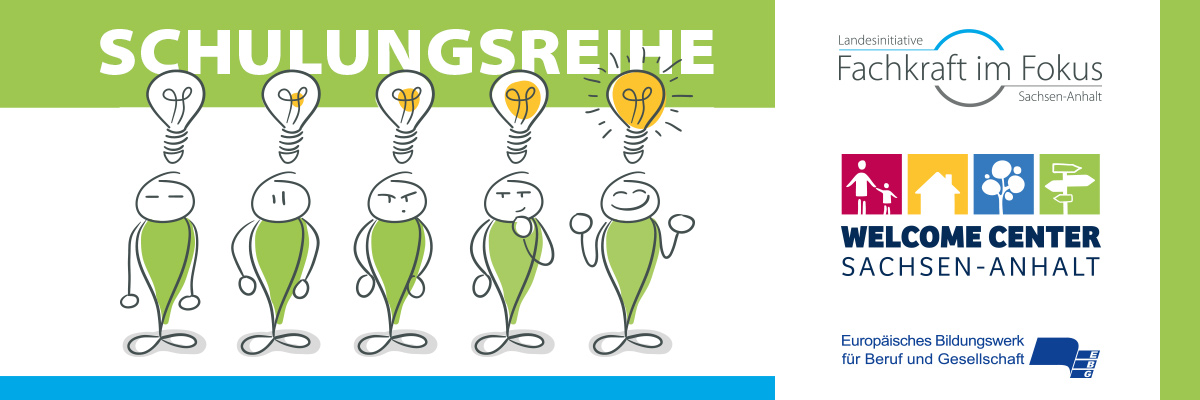
© Landesinitiative Fachkraft im Fokus
From October 2023 to January 2024, the WelcomeCenter Saxony-Anhalt offered various training courses on the basics and current topics of labour market integration to support regional full-time and voluntary actors and all other interested parties. Participants had the opportunity to familiarise themselves with legal principles, obtain up-to-date background information and exchange ideas with other stakeholders about regional challenges.
The training sessions were held online via Teams and covered the following topics
- Introduction to the legal basis and labour market access for refugees
- Tolerated training authorisation
- Immigration law for skilled labour
- EU citizens
- Residence Opportunities Act
The training courses were organised by the European Training Centre for Work and Society. In total, over 200 people took part in the training sessions.
If you are interested in similar training courses, please contact us.
The individual modules in detail:
Introduction to the legal basis and labour market access for refugees
In this module of our training series, we provided an overview of the legal basis and labour market access for refugees. This included the asylum procedure, the various residence statuses and topics such as family reunification and residence regulations.
Training toleration
The "Ausbildungsduldung" is a special type of "Duldung" that requires the completion of at least two years of training. The training dealt with the requirements, period of validity, application procedure and other aspects of the Ausbildungsduldung.
Skilled Labour Immigration Act
The Skilled Immigration Act, the first version of which has been in force since 2020, makes it easier for skilled workers with vocational training or an academic degree and people with practical vocational knowledge to immigrate to Germany. The first changes came into force in 2023 and are intended to further simplify the recruitment of employees from abroad. Among other things, the training explained how the process works under various conditions and what is meant by the accelerated skilled labour procedure.
EU citizens
EU citizens enjoy many freedoms and comprehensive protection: personal, civil, political, economic and social rights, protection of personal data and protection against discrimination as well as freedom of movement without border controls in most EU countries. All EU citizens have the right to enter the member states of the EU, the EEA (EU plus Iceland, Liechtenstein and Norway) and Switzerland without a visa. EU citizens also have the right to reside and work in other countries with virtually no restrictions and without special authorisation (see www.bmi.bund.de/DE/themen/migration/aufenthaltsrecht/freizuegigkeit-eu-buerger/freizuegigkeit-eu-buerger-node.html). How this works in detail and what exceptions there are was explained in this training course.
Residence Opportunities Act
The new law on the Right of Residence by Opportunity came into force on 31 December 2022. The right of residence for opportunities is a residence permit for 18 months. The training explained in detail which requirements apply to an application.

